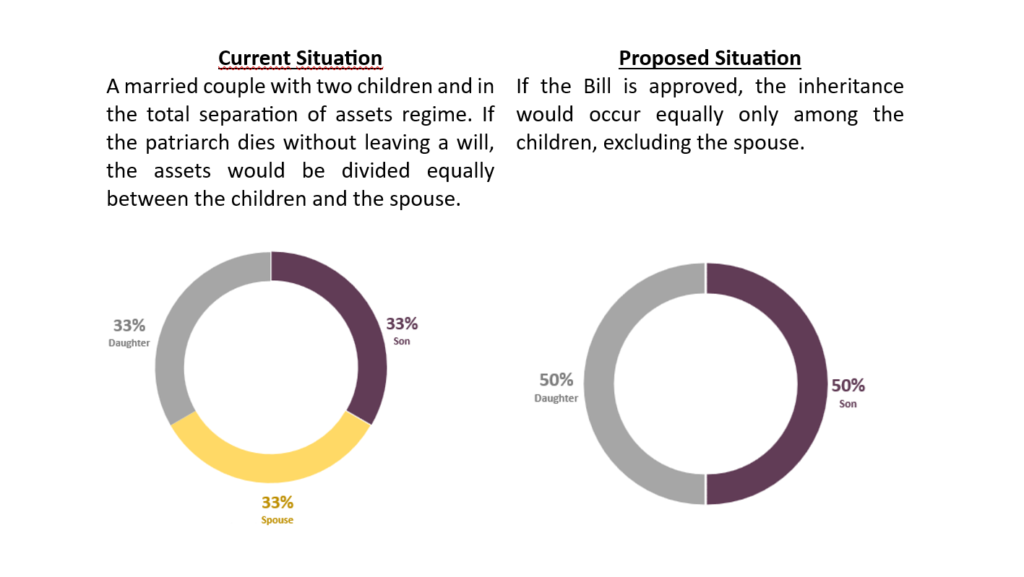As we approach the end of the first half of the year, we highlight two bills presented to the National Congress that could significantly change the estate and succession planning of many families.
Last April, the bill for the Reform of the Civil Code was presented to the Senate with the aim of updating the 2002 civil legislation and preparing it for the future.
Among the various topics addressed, the changes in the inheritance rules stand out, specifically the exclusion of spouses and partners from the concept of necessary heirs.
To demonstrate what this changes in practice, let’s look at the following example:

In addition to the example above, changes in civil legislation may also impact, albeit to a lesser extent, other marriage regimes.
If the Bill is approved, it will be essential for couples in this situation to make wills if they wish to allocate part of their assets to their spouse in the inheritance.
Another issue is the Complementary Law Bill (PLP) No. 108/2024, presented by the Government to Congress in June, as part of the regulation of the tax reform, bringing important changes by establishing general inheritance and donation tax (ITCMD) rules that must be followed by all States.
We highlight in the PLP the obligation for States to set progressive rates based on the value transferred, respecting the limit of 8%. Today, the ITCMD tax rate in the State of São Paulo, for example, is fixed at 4%.
Another point that draws attention is the increase in the calculation basis for the donation of shares of companies not listed in the stock exchange. The PLP establishes that the value of the donation must be equivalent to the “net worth adjusted by the assessment of assets and liabilities at market value”. Today, the calculation basis in these cases is the company’s net worth.
Finally, the PLP also consolidates the ITCMD tax rules in cases involving trusts or other assets and parties abroad.
Both projects are pending approval by the National Congress. However, it is important to follow the legislative procedures to prevent these changes from impacting estate and succession planning already carried out.
By Igor Ribeiro Ferreira, lawyer at Candido Martins Advogados.


